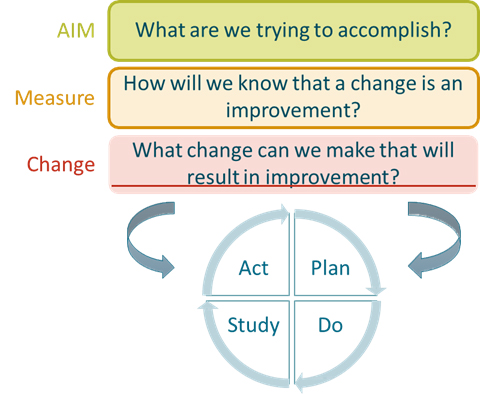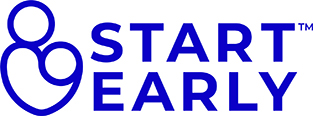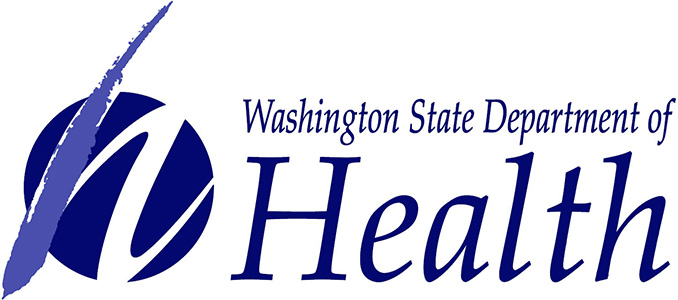Implementation Supports
Technical Assistance
Start Early Washington, a contracted partner of DCYF, administers the Home Visiting Services Account (HVSA). The HVSA supports home visiting programs with individual and group technical assistance. Technical assistance activities include individual calls with supervisors, visits to program sites, small-group discussions with peers, and model-specific supervisor meetings. Read the overview of Start Early’s home visiting team.
Start Early technical assistance providers will partner with HVSA-funded program supervisors to develop technical assistance plans on an annual basis. These plans will align with programmatic goals and determine the focus and frequency of technical assistance activities.
Start Early also offers communities of practice for home visitors and supervisors to connect across models and funding streams on topics of mutual interest. For a schedule of CoP opportunities, visit Start Early’s website.
Continuous Quality Improvement
In addition to general home visiting implementation support, Start Early provides focused technical assistance and coaching on continuous quality improvement processes. Continuous quality improvement is a systematic and iterative process that connects programmatic data to practice and seeks to identify changes that result in significant improvement.
Continuous Quality Improvement (CQI) provides a constructive and adaptable framework to promote quality, innovation, and program reflection in order to improve outcomes for families. This process is fundamentally data driven, but also draws on the expertise and invaluable knowledge of front-line home visiting staff and families. A thoughtfully implemented CQI project has the potential to optimize program outcomes, identify and test innovative approaches, disseminate best practices, and enhance program efficiency and effectiveness. Through exploration of existing data or data captured through new methods, CQI prompts deep reflection of current practice and outcomes – recognizing the value of learning and development.
Start Early and DCYF are committed to CQI to ensure the best possible services are provided for children and families to CQI to ensure we provide the best possible services for children and families. CQI moves beyond quality assurance to be prospective and address systems-level challenges and opportunities. The methodology of CQI encourages deep reflection, engages both management and front-line staff, and provides a framework for systems and detailed-level thinking. Improvement is achieved through incremental and targeted changes - even the most daunting challenges can be tackled by dissecting the problem into manageable pieces. Quality improvement provides a space to address the specific context and needs of your population, environment, and program context.
The following information serves as an overview for CQI within the HVSA. Each section includes a general overview of the topic and links to materials that support CQI and reporting, including training videos, sample templates, and more.
For questions about CQI, email Camille Carlson at ccarlson@startearly.org.
Introduction to CQI

The Model for Improvement is structured around 3 questions:
- What are we trying to accomplish? To answer this, we establish a SMART aim.
- How will we know if a change is an improvement? We need data to detect and measure the change.
- What changes can we make that will result in improvement? We need to have ideas or best practices that we will use that we believe will help us move toward that goal and result in the improvement we're looking for.
At the heart of the Model for Improvement is the Plan-Do-Study-Act (PDSA) cycle which we use to test changes.
- Steps in the PDSA Cycle
- Plan: Develop a plan to test the change (Who? What? When? Where?)
- Do: Run the test on a small scale. Collect data.
- Study: Analyze the results and compare them to your predictions.
- Act: Adapt (make modifications to run another test), adopt (test the change on a larger scale), or abandon (don’t do another test on this change idea).
- Sample PDSAs
Overview of HVSA CQI Requirements
The Contractor shall participate in ongoing training and technical assistance associated with CQI. DCYF-specified contractors providing this training and technical assistance include Start Early and DOH who will also support the Contractor with data collection and measurement, quality improvement methodologies, implementing PDSA (Plan Do Study Act) cycles, topic specific CQI tools and resources, and the CQI Toolkit.
The Contractor shall implement the following CQI Structure during the entire contract term:
- Focus CQI activities on one of the following topics:
- Caregiver Mental Health;
- Family Engagement and Retention;
- Staff Engagement and Retention (Team Support and Well-Being)
- Other Topic Areas Approved by DCYF (examples include health equity, data quality)
- Establish an internal CQI staff team to oversee, support, and implement CQI activities to assess program processes and outcomes; the CQI Team members are expected to participate in regular CQI team meetings, CQI webinars, and CQI project activities.
The Contractor shall participate in the following CQI Activities throughout the contract term:
- Participate in monthly CQI calls/webinars to share information and learn from peers. The aim is to sustain collaboration and peer support related to improving practice and program implementation;
- Conduct rapid cycle PDSA tests and ramps, at least monthly, to test, adapt, and implement changes in their local settings;
- Track data relevant to PDSA tests and CQI activities and reflect on that data;
- Report on CQI Progress to DCYF through existing deliverables - Monthly Enrollment Reports and Quarterly Progress Reports; DCYF will share these with Start Early WA and DOH for review and feedback to the Contractor;
- As part of ongoing quarterly progress reports, the contractor will share details about their monthly PDSA testing, data collected, reflections, and any adaptations.
- Contractors experiencing Minimum Active Enrollment Caseload below 85% of the Maximum Service Capacity, as defined in Section 6 (c) of this statement of work, will report monthly via the Monthly Enrollment Report on CQI activities, including PDSA tests, data and reflections, to address understanding and improving their Active Enrollment Caseload.
- Create a plan for sustaining gains made through CQI activities.
Data Collection
CQI progress will be reported to DCYF through the monthly enrollment reports and quarterly progress report. The following questions will be asked in each report:
Monthly Report* (only available to LIAs experiencing Active Enrollment Caseload under 85%)
- Please explain Active Enrollment Caseload under 85%
- Please describe PDSA cycles that address Active Enrollment Caseload and/or CQI strategies and approaches you are utilizing to address this.
- Would you like additional support from the Start Early CQI Lead?
Quarterly Report
- What topics did your PDSA cycles focus on?
- Were there any discoveries or surprises when reviewing CQI data?
- Based on what you learned through your PDSA cycles, what changes will you adopt, adapt, or abandon moving forward?


